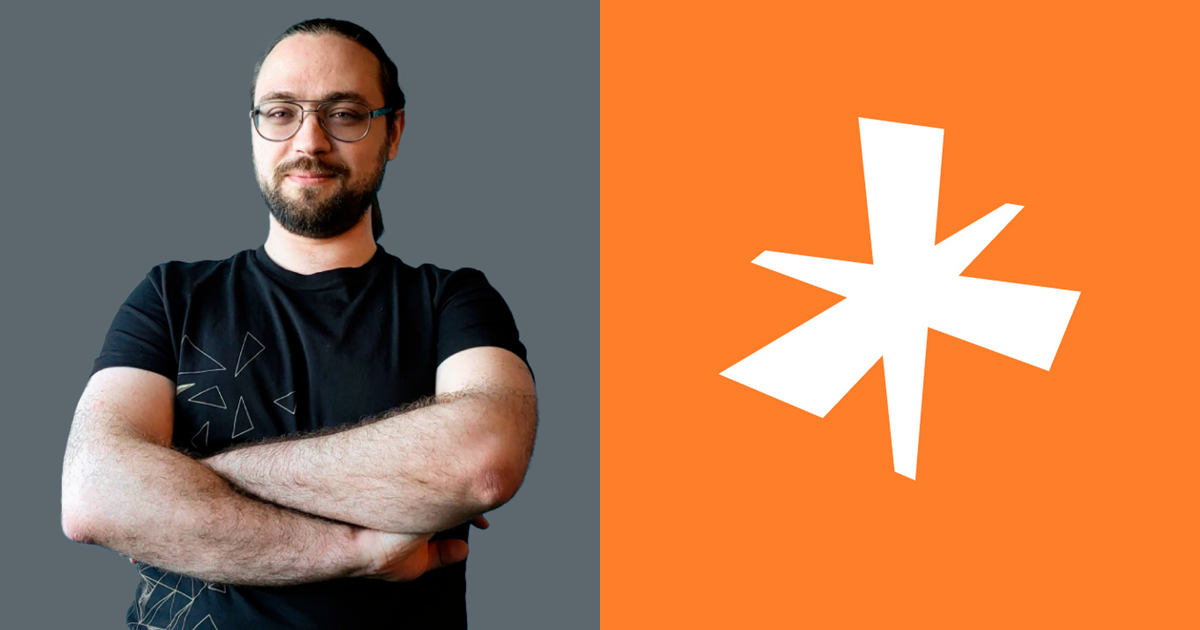We continue to summarize the results of 2023 with the gaming (or related to the gaming sector) teams. Next up is an interview with Vitaly Agafonov, head of the Nau Engine product.
What year was it for the engine? What have you done that I would like to highlight in terms of achievements?
2023 is the year of birth of the Nau Engine. Nine months have passed from the appearance of the idea to the first viable prototype (very symbolically), and on November first the engine went into closed alpha testing. And this is perhaps the most important achievement for 2023: the creation of the first, earliest version of the engine, in which you can already make a simple project.
As in the case of a living being, it takes a little time for the engine to get stronger and be presented to the public. That is why the alpha version is being tested behind closed doors.
In 2023, a lot of work was done to accumulate the team's experience, select the technology stack, and directly develop the engine to its current state.
Especially for App2Top, we shed light on the functionality of the alpha version of the Nau Engine, which will be tested by the participants until the end of winter.
The current build, available to alpha testers, contains all the basic systems in the minimal implementation that allows us to confirm our hypotheses. We have created an editor where in one application you can manage the entities of a game project, assemble a level (or several) on geometric primitives, or import third-party models and "shake" it all in the editor's viewport. Naturally, assets and textures to them can be imported from common formats like FBX or OBJ, including those with support for PBR materials. You can set up skybox lighting, additional dynamic light sources and shadows for the scene. Next, by writing game logic scripts, set the game cycle, animate objects and define controls for the user. You can test all this directly in the editor in Play Mode, and assemble the created project into an independent build to run on Windows.
How has the game engine market changed, what trends and events would you note?
At the beginning of the year, we introduced the audience to our unique idea of what an engine should be able to do. Work on the game does not end with the assembly of the "gold master" version, the stage of direct development is followed by the stages of operation and publication of the game, the use of various analytics systems, marketing tools and other "joys" that most novice developers do not think about. We have repeatedly said that Nau Engine will have tools for all stages of the product lifecycle. And we were the first to look beyond the "done and forgotten" paradigm. But trends are changing, and Unity has already made a statement at the last presentation that they will have tools to facilitate the support phase. Whether this will become a new trend in the engine market is difficult to say, but we are sure that this approach is the next stage in the evolution of game engines.
Another trend in recent years has been to simplify the interaction of developers with the tool: there are more and more top—level components that allow you to speed up similar processes. Unreal Engine sets the trend very vividly here: using blueprints it is much easier to write game logic (now everyone wants visual programming). The work of engine developers is becoming more difficult, and the work of end users is becoming easier.
Perhaps we can also highlight the proliferation of large engines into "combines" – they tend to cover all needs within a single tool. Here you will find texture editors right in the viewport, advanced animation systems, and connected asset stores - everything to eliminate the need to use third–party tools. This "monopolization" of developers by large engines "puts" them on the tool, makes them dependent on the usual functionality and greatly complicates the transition to another "combine".
What are the engine's plans for next year?
Our plans for 2024 are very ambitious. The nearest horizon is the completion of alpha testing, analysis and landing feedback from participants.
And already, the first reviews show that a significant part of the proposals and wishes are included in the plans or are already under development.
In addition to feedback on the functionality of the engine and the sample we have collected, the participating teams also share their small developments on the Nau Engine.
The main goal for 2024 is to enter open beta testing. For this stage, we are putting into the engine a simple implementation of all the basic systems needed to create the game, as well as the first modules for the support and publication stages.
I can already say that the beta version of the engine will include support for skeletal animations, a physics module and a particle system, tools for working with cameras and light, a simple audio engine, as well as network capabilities.
We plan to publish a detailed list of features as part of the Nau Engine Open Beta next year, in the spring. Follow the news!

